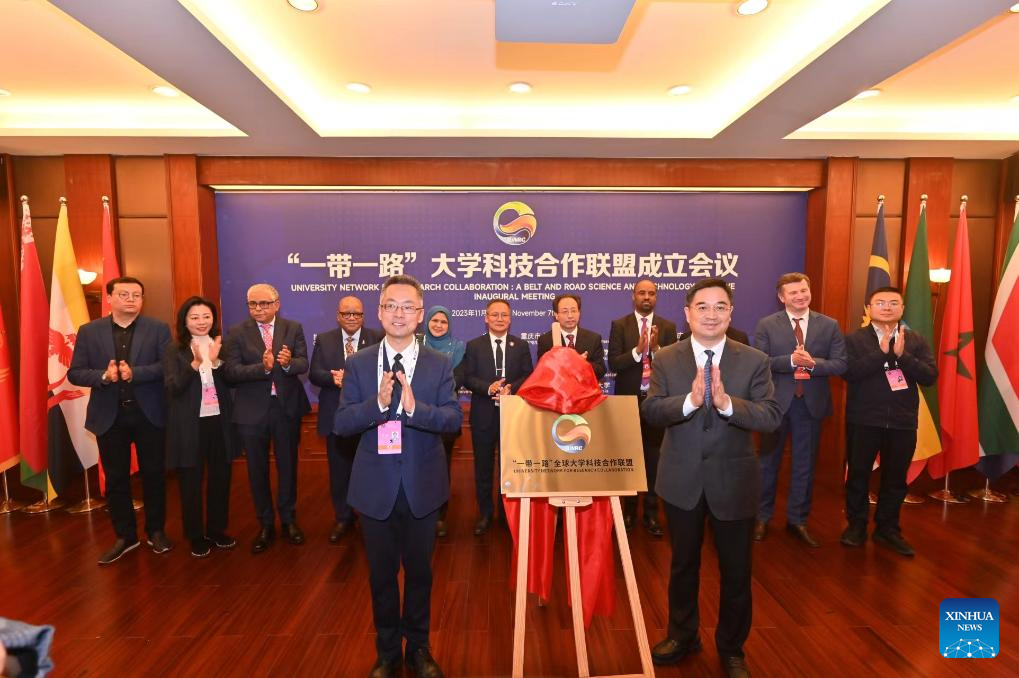
A new international academic network has been launched in southwest China’s Chongqing Municipality with the aim of fostering closer research coordination between China and Belt and Road Initiative (BRI) partner countries.
University Network for Research Cooperation: A Belt and Road Science and Technology Initiative (iUNRC) was launched during the first Belt and Road Conference on Science and Technology Exchange held in Chongqing from Monday to Tuesday. 12 universities from BRI partner countries became the first members of the network.
Besides Chongqing University, founding members include three universities from China and eight foreign universities such as Ambo University in Ethiopia, Belarusian State University and Mongolian University of Science and Technology.
iUNRC aims to facilitate the exchange of information, knowledge and resources among universities around the world, promote interconnection in research cooperation, and inject inspiration and vitality into high-quality Belt and Road cooperation.
China’s universities and BRI partner countries have already been engaged in close cooperation for a long time, including research and talent training programs.
At Beijing Institute of Technology, one of the iUNRC members, students from BRI partner countries make up 70 percent of its more than 2,800 foreign students. It has also set up a joint laboratory of intelligent unmanned systems with the UAE, which has yielded fruitful results.
Many universities in BRI partner countries have highlighted the importance of collaboration where research is concerned.
Namnan Tumurpurev, president of the Mongolian University of Science and Technology, said the challenges to achieving the Sustainable Development Goals are beyond the resources and capabilities of individual universities. Joint efforts should be made to implement cooperation programs to overcome the disparities between different countries, he said.
President of Ambo University, Bayissa Letta Dano, said the university excels in agricultural engineering and strives to promote agricultural development through relevant scientific and technological advancement for the well-being of people worldwide.
By working together on various research topics, universities can develop many new methods and tools, improve the quality of research and foster a better, healthier and more sustainable world, he said.
Wang Shuxin, academician of the Chinese Academy of Engineering and president of Chongqing University, said the university will speed up the construction of a regular science and technology transfer mechanism and mobilize more science and technology resources from global universities to meet innovation needs. Cooperation under BRI.
China has supported more than 10,000 young scientists from BRI partner countries to come to China for short-term research and exchanges, and trained 16,000 people from BRI partner countries in technology and management skills, according to the Chinese Ministry of Science and Technology.

. „Gracz. Namiętny pionier w mediach społecznościowych. Wielokrotnie nagradzany miłośnik muzyki. Rozrabiacz”.
